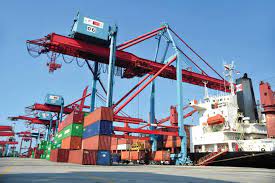Customs classification is a crucial process that helps to determine the duties, taxes, and fees that must be paid on imported goods. It is the process of determining the specific category or type of goods being imported and assigning it a specific code or number. This code is used to determine the applicable duties, taxes, and fees that must be paid on the goods, as well as any regulations or restrictions that may apply. In this article, we will explore the importance of classification in customs and how it helps to ensure the efficient and effective operation of international trade.
Determination of Duties and Taxes: The most important function of classification in customs is to determine the duties and taxes that must be paid on imported goods. The specific code or number assigned to a particular type of good is used to determine the applicable duties and taxes that must be paid on that good. This helps to ensure that the correct amount of duties and taxes are paid on each shipment, and that businesses are operating in compliance with all relevant regulations.
Enforcement of Regulations and Restrictions: Classification in customs also helps to enforce regulations and restrictions that may apply to certain types of goods. For example, goods that are classified as hazardous or dangerous may be subject to additional regulations or restrictions, such as restrictions on the method of transport or the required labeling and packaging of the goods. By accurately classifying goods, customs authorities are able to enforce these regulations and restrictions, helping to protect the health and safety of individuals and the environment.
Facilitation of Trade: Customs classification also helps to facilitate trade by ensuring that the correct duties and taxes are paid on imported goods. By accurately classifying goods, customs authorities are able to process shipments in a timely and efficient manner, reducing the risk of delays and increasing the overall efficiency of international trade.
Protection of Domestic Industries: Classification in customs also helps to protect domestic industries by ensuring that imported goods are subject to the correct duties and taxes. This helps to level the playing field for domestic businesses and ensures that they are not at a disadvantage to imported goods.
Compliance with International Agreements: Finally, classification in customs helps to ensure compliance with international trade agreements. By accurately classifying goods, customs authorities are able to enforce trade agreements and regulations, and ensure that the import and export of goods is in compliance with all relevant agreements and regulations.
Conclusion
Classification in customs is a crucial process that helps to determine the duties, taxes, and fees that must be paid on imported goods. It is also used to enforce regulations and restrictions that may apply to certain types of goods, and to facilitate trade by ensuring that the correct duties and taxes are paid on imported goods. By understanding the importance of classification in customs, businesses can ensure that their imports and exports are processed smoothly and efficiently, and that they are operating in compliance with all relevant regulations and trade agreements.


